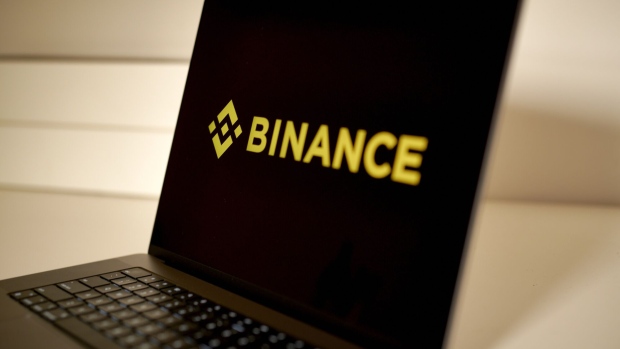Jun 13, 2023
Binance.US, SEC Not Far Apart on Deal Avoiding Full Asset Freeze
, Bloomberg News

(Bloomberg) -- Binance.US and the Securities and Exchange Commission agreed to work on a deal that avoids a total asset freeze at the cryptocurrency trading platform, which the regulator has accused of operating illegally.
US District Judge Amy Berman Jackson said Tuesday the two sides “aren’t that far apart” on ways to protect billions of dollars in customer funds without shutting the exchange down while the SEC’s lawsuit proceeds. She referred them to a magistrate judge to work on a compromise agreement.
“The nitty-gritty of it is better handled by you than by me,” Jackson said during a hearing in Washington. The judge said if a deal is struck, she would no longer need to rule on the SEC’s request for a temporary restraining order.
The SEC sought the asset freeze last week for Binance.US, a trading platform owned by Binance Holdings Ltd. founder Changpeng Zhao. In its June 5 lawsuit, the SEC accused Binance and Zhao of mishandling customer funds, misleading investors and regulators, and breaking securities rules.
Binance.US, which is fighting the SEC’s suit and says customer assets are safe, argued during the hearing that blocking the flow of all funds would cripple its business and hurt customers.
“We are not willing to accept the death penalty eight days into our case,” one of the Binance.US lawyers told the judge.
The exchange needs to have the ability to cover ordinary business expenses such as payments for rent, salaries, vendors and licensing of software, the Binance.US attorney said. “The area that is giving us consternation is an asset freeze that will be misconstrued by banks,” he said.
The judge agreed. “Shutting it down completely would create significant consequences not only for the company but for the digital asset markets in general,” she said during the hearing.
Read More: Why Crypto Flinches When SEC Calls Coins Securities
According to the lawsuit, Binance improperly moved billions of dollars of customer funds to a bank account for an entity controlled by Zhao. Those funds were transferred to a third party and then appeared to be used to purchase and sell crypto, the regulator said.
Binance, in response to the SEC’s request for an asset freeze, had proposed a compromise that would include transferring US customer cryptoassets to new wallets with new private keys that would be under the sole control of US-based officers at Binance.US.
Operating Costs
As part of its proposal, the exchange also asked for permission to keep paying employees and cover operating costs, while pledging that no assets would be transferred or payments made to benefit any Binance entity without a judge’s order.
The SEC, in its compromise proposal filed with the court, asked that Binance repatriate customer assets to the US, where they’d be under the control of entities that are outside the reach of Zhao and can handle redemptions for customers.
During the hearing, one SEC attorney said the regulator is open to a “narrowly-tailored exception” to any freeze that would let Binance.US cover its operations. The regulator asked that Binance.US provide an accounting of its business expenses and professional fees to better understand what would be required to keep operating the platform.
The judge ordered that Binance.US file a list of its business expenses by Wednesday.
A lawyer for the SEC said the asset freeze was necessary because of a risk that Binance would transfer customer assets offshore.
In an earlier memorandum, the SEC said “Zhao and Binance have a pattern and practice of commingling customer funds” as well as “moving funds outside of the US and/or on the blockchain where they are outside of this court’s reach.”
The memorandum said Binance.US customer assets total over $2.2 billion and described Zhao as “a foreign national who has made overt his views that he is not subject to the jurisdiction of this court.”
The case is SEC v. Binance, 23-cv-01599, US District Court, District of Columbia (Washington, DC).
(Updates with details from the hearing.)
©2023 Bloomberg L.P.





